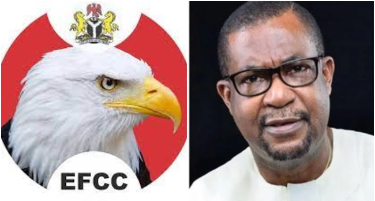
In a recent legal development, the Federal Capital Territory High Court, situated in Apo, Abuja, rendered a significant ruling on Wednesday, dismissing a preliminary objection raised by former Minister of Power and Steel, Olu Agunloye, challenging the authority of the Economic and Financial Crimes Commission (EFCC) to prosecute him.
Agunloye stands accused by the EFCC on a seven-count charge related to the alleged fraudulent Mambilla Power Project contract award, valued at a staggering $6 billion.
Back on February 8, 2024, Agunloye, through his legal representative Adeola Adedipe (SAN), lodged a motion disputing the EFCC’s jurisdiction to investigate and prosecute him, alongside the court’s jurisdiction to try his case.
In response, the prosecution, represented by Abba Muhammed, filed a counter affidavit dated February 22, 2024, arguing that Agunloye’s motion was incompetent and contrary to Section 115(2) of the Evidence Act.
In his ruling, Justice Jude Onwuegbuzie emphasized the provisions of Sections 6 and 7 of the EFCC Establishment Act, 2004, which confer upon the Commission the power to conduct investigations and prosecute cases involving economic and financial crimes.
He elucidated that the EFCC is mandated to probe and prosecute various offenses, including contract scams, money laundering, and advance fee fraud, among others. Given the nature of the charges against Agunloye, which fall within the ambit of economic and financial crimes, the court deemed his motion devoid of merit and consequently dismissed it.
Addressing the issue of the prosecution fiat obtained by the Commission from the Office of the Auditor-General rather than the Attorney-General of the Federation (AGF), Justice Onwuegbuzie clarified that any authorized state, authority, or individual could initiate criminal proceedings in the absence of the AGF.
Furthermore, he emphasized that the absence of the AGF’s seal on the charges does not diminish their validity, as the AGF retains the prerogative to delegate prosecutorial powers to any member of his department as stipulated by law.
As the legal proceedings unfold, the court has adjourned the matter until May 30, 2024, for the continuation of the trial, underscoring the gravity and complexity of the case at hand.




